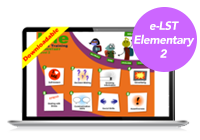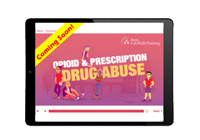- Home
- LST overview
- research
- programs
- LIFESKILLS TRAINING
- DIGITAL PROGRAMS
- SUBSTANCE ABUSE
- TARGETED! How Tobacco & Alcohol Companies Try to Get You Hooked
- Alcohol & the Teenage Brain: A Video Guide for Parents and Professionals
- Club Drugs: A Video Guide for Parents and Professionals
- Marijuana: A Video Guide for Parents and Professionals
- Prescription Drugs Update
- Rushing, Crashing, Dying: The Meth Epidemic
- Too Much: The Extreme Danger of Binge Drinking
- Top Ten Myths About Alcohol and Drugs
- Underage Drinking: A Video Guide for Parents and Professionals
- Wise Owl’s Drug Safety Kit
- Everything You Need to Know about E-Cigarettes, Vaping and Hookahs
- BULLYING
- HEALTH
- NUTRITION
- LIFESKILLS TRAINING
- training information
- News
- Resources
- How to Order
- Contact Us
Menu
- Home
- LST overview
- research
- programs
- LIFESKILLS TRAINING
- DIGITAL PROGRAMS
- SUBSTANCE ABUSE
- TARGETED! How Tobacco & Alcohol Companies Try to Get You Hooked
- Alcohol & the Teenage Brain: A Video Guide for Parents and Professionals
- Club Drugs: A Video Guide for Parents and Professionals
- Marijuana: A Video Guide for Parents and Professionals
- Prescription Drugs Update
- Rushing, Crashing, Dying: The Meth Epidemic
- Too Much: The Extreme Danger of Binge Drinking
- Top Ten Myths About Alcohol and Drugs
- Underage Drinking: A Video Guide for Parents and Professionals
- Wise Owl’s Drug Safety Kit
- Everything You Need to Know about E-Cigarettes, Vaping and Hookahs
- BULLYING
- HEALTH
- NUTRITION
- LIFESKILLS TRAINING
- training information
- News
- Resources
- How to Order
- Contact Us
0 item(s)
- $0.00
No products in the cart.
- Home
- LST overview
- research
- programs
- LIFESKILLS TRAINING
- DIGITAL PROGRAMS
- SUBSTANCE ABUSE
- TARGETED! How Tobacco & Alcohol Companies Try to Get You Hooked
- Alcohol & the Teenage Brain: A Video Guide for Parents and Professionals
- Club Drugs: A Video Guide for Parents and Professionals
- Marijuana: A Video Guide for Parents and Professionals
- Prescription Drugs Update
- Rushing, Crashing, Dying: The Meth Epidemic
- Too Much: The Extreme Danger of Binge Drinking
- Top Ten Myths About Alcohol and Drugs
- Underage Drinking: A Video Guide for Parents and Professionals
- Wise Owl’s Drug Safety Kit
- Everything You Need to Know about E-Cigarettes, Vaping and Hookahs
- BULLYING
- HEALTH
- NUTRITION
- LIFESKILLS TRAINING
- training information
- News
- Resources
- How to Order
- Contact Us
















